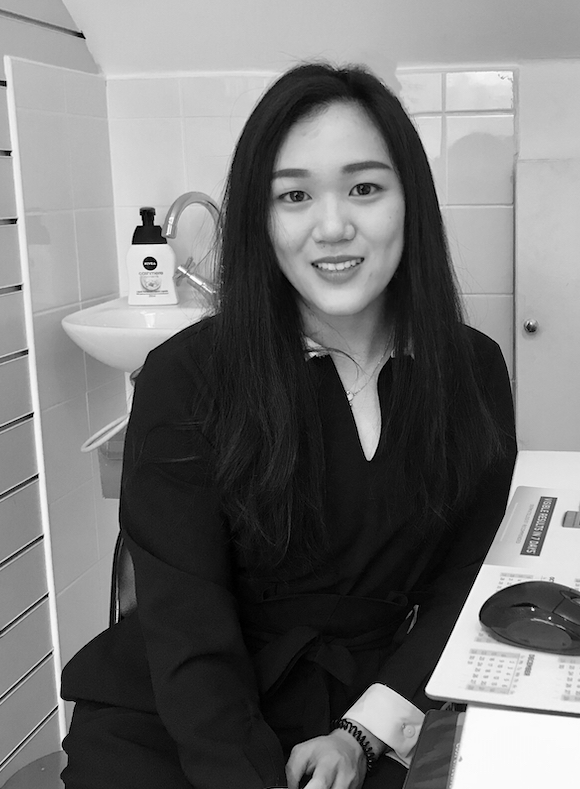Happy, healthy holidays
In OTC
Follow this topic
Bookmark
Record learning outcomes
By Sarah Purcell
Despite all the publicity, a third of us still get sunburnt every year, according to a study by the British Association of Dermatologists, with 28 per cent getting burnt three times a year. Worse, an estimated 86 per cent of melanoma skin cancers in the UK (around 13,600 cases a year) are directly linked to sun exposure, say Cancer Research UK. The risk is highest with people who expose their skin to short, intense bursts of sunlight. It’s the second commonest cancer among 25-49 year olds; since the early ‘90s incidence has more than doubled.
A study carried out for Ambre Solaire found that half of parents think it’s OK for their children to have a sun tan and a third think it’s ‘healthy’. Almost half of parents surveyed said their children had been sunburnt.
“The most important message to get across to your customers is to keep covered up with clothing, hats and sunglasses when the sun is hot, and to spend time in the shade or indoors between 11am and 3pm. Sunscreen should be the last line of defence, not the first,” says Karis Betts at Cancer Research UK. “Don’t promote products which encourage ‘tanning’ behaviour, so it’s probably best to steer away from tanning oils. Consumers need to be very cautious when using ‘once a day’ sunscreens, they still need to reapply frequently.”
At Numark, service development pharmacist Lucy Morris, says: “If customers are using a DEET-based insect repellent, advise that it reduces the sun protection factor (SPF) of sunscreens, so a higher SPF should be used. Repellent should always be applied after sunscreen.”
Well pharmacist Sadik Al-Hassan says: “When customers are shopping for sunscreen it is important to think about what they will be doing so you can find one that suits them. Advise customers that even once daily products just offer extended wear and still need to be reapplied.”
Alphega pharmacy member Simon Nelson, at Nelson’s Pharmacy in Gwent, says: “Stock trusted brands with higher SPFs. Look closely at your customer profile – your sunscreen sales will be an extension of your regular sales. Be aware of trends, but don’t ignore the basics.”
Consultant dermatologist and British Skin Foundation spokesperson, Dr Anjali Mahto, says consumers are getting the message about using higher SPFs. “Of those who use sunscreen in the UK, three-fifths use SPF30+ and more than three-quarters say they use SPF30+ abroad. Some seven in 10 parents said they use SPF30+ on children in the UK and abroad. The top influencers when choosing sunscreen are SPF and UVA/UVB rating, with 86 per cent now confident with sunscreen labelling.”
Dr Mahto has this advice to give customers:
- Look for SPF30+ to protect against UVB and four or five stars to protect from UVA rays. Apply 15-30 minutes before going out in the sun
- Reapply sunscreen every two hours, and after swimming or towel drying
- An average sized adult should use half a teaspoon (3ml) of sunscreen on each arm and face/neck, one teaspoon (6ml) for each leg, the front of the body and the back. Use about a quarter teaspoon for the face
- Chemical sunscreens contain ingredients that filter and reduce UV penetration and take about 20 minutes to become effective on skin. Physical/mineral sunscreens contain titanium or zinc dioxide to block UV rays. They are good for sensitive skins
- Ingredients that may cause allergy include benzophenones, dipenzoyl methanes, cinnamates, salicylates and para-aminobenzoic acid.
Market trends
Many customers find that using sunscreen on their face can cause breakouts, oily skin or make-up ‘slide’. Manufacturers have noted these concerns and introduced a raft of skin-specific sunscreens. Nivea UV Face Q10 anti-age and anti-pigments caters for consumers concerned about sun-related ageing, while La Roche Posay Anthelios Shaka ultra light facial spray is good for those who want a non-greasy product. For customers with dry skin, there is Hawaiian Tropic Silk Hydration Airsoft Face, while for those who hate shine, Vichy Ideal Soleil Mattifying Face Dry Touch sun cream is a good choice.
Manufacturers have addressed stickiness and visible signs on the skin with a host of new invisible and dry touch sunscreens. Nivea Protect & Refresh Invisible Cooling sun spray, Ambre Solaire UV Water Clear spray and Ambre Solaire Dry Mist spray all give invisible and non-sticky protection.
For children, the main priorities are fast and effective application. Nivea Kids Swim & Play gives immediate protection and is extra water resistant while roll-on and trigger spray formats are designed for fast and fuss-free application.
For consumers sensitive to sunscreen ingredients, there is a growing choice of skin-friendly products you can recommend. Ambre Solaire has an increasing range of sensitive skin products, while Eucerin has added a Dry Touch spray for sensitive skin. Natural sunscreens are becoming more popular, says Incognito founder Howard Carter. “The most interesting innovation is natural sunscreen insect repellents, as recent research has demonstrated applying an insect repellent after a sunscreen lowers the SPF.” Incognito SPF30 Suncream Repellent is suitable for sensitive skins.
Improve your travel health category
• “Your travel category should be health-focused. Products such as digestive relief, sunscreen, travel sickness tablets, insect repellents and antimalarials are all products customers will expect to find. Consider how you can make link sales with a travel vaccination service,” says Lucy Morris at Numark.
• “If you sell just on price someone will always undercut you. We need to be competitive, but our value in advice and reassurance needs to be priced into our offer. Remember you are not just selling a product but a service,” says Simon Nelson.
• “Make a list of what each of your staff buys to go on holiday – that’s a good starting point for merchandising your travel category. Don’t wait until the holiday season is here, get it out early and make sure it’s well signposted. Re-merchandise your medicines area to create a holiday travel section,” says Simon Nelson.
• “We recommend stocking sunscreen of SPF15 and above to encourage good protection. Consider a range of different formats to offer choice and a selection of products for adults and children,” says Lucy Morris.
• “Lip balms with SPF are an often forgotten link sell where people are willing to spend a bit more. People often value brands when choosing sunscreen and with children’s sunscreen tend to prefer a spray and look for SPF50,” says Sadik Al-Hassan at Well.
• “Don’t forget the fundamentals – invest in staff training and listen to your customers. Adapt as the season progresses with weekly staff meetings,” says Simon Nelson. “Think about linking with local travel agents to help signpost and refer customers to your services.”
Setting up a travel clinic
Customers will have looked forward to their summer holiday, so they won’t want it spoiled by ill health or sunburn. Yet while over 70 million people travel from the UK each year, almost 50 per cent of them seek no travel advice at all. “The opportunity for pharmacies to earn revenue from starting a travel clinic is substantial and the risks to enter this market are very low,” says Jignesh Patel, independent prescriber and director of Travel Jab UK, which links customers with their nearest travel clinic via its website.
If you don’t already have a travel clinic in your pharmacy, it’s worth considering one. Your customers already come to you with antimalaria prescriptions, for sunscreens, insect repellent and holiday first aid supplies, so it makes sense for their pharmacy to offer them travel health advice and vaccinations too.
Wojtek (Mike) Bereza is managing director and chief pharmacist at Voyager Medical, which offers training and support to pharmacists who want to set up a clinic. “It’s becoming increasingly popular because it’s a good way to increase revenue. It’s profitable and rewarding for staff. Talking to customers about going on holiday can be a welcome change from day-to-day pharmacy tasks too.”
His advice is to consider the options. If you want to run the service yourself, you can train to become an independent prescriber (IP), although simpler and less time consuming is to offer the service using PGD (patient group direction) protocols. There are numerous companies who offer PGDs (see last month’s P3pharmacy for further details). “You might want to start by offering a flu vaccine service, then when you’re confident with that, add hepatitis B, then a malaria PGD and finally other travel vaccinations. This can then become a stepping stone to becoming an IP.”
He suggests you look for the following when making your choice:
- High quality training. “At Voyager we employ pharmacists to train you in travel medicine, rather than nurses as many others do.”
- Little or no revenue share of patient consultations
- Good clinical support. “Travel medicine is more complex than people realise, so it’s good to have ongoing support.”
Independent prescriber Alex Leung is education and course director at Voyager Medical and head of travel medicine and allergy services at Acre and Acrefield Surgery. He’s also a member of the Royal College of Physicians & Surgeons of Glasgow Faculty of Travel Medicine Education Board and chief pharmacist of Shell UK. “I’d say there is huge job satisfaction in a travel clinic. It’s one of the most hands-on services a pharmacy can offer. It shouldn’t just be about giving vaccinations, it should offer customers comprehensive and tailored travel advice.”
He agrees it can be a good idea to start with the basics, and offer the full range of travel vaccinations when you’re ready. “I wouldn’t advise offering children’s vaccinations at first – wait six to 12 months before you do this,” he says. Voyager offers paediatric training, and can also train pharmacists to give intra-dermal immunisations.”
When choosing a trainer, he says it’s important to get feedback from previous students. “Look for a provider who will offer you in depth training, and one that will allow you to run your clinic independently but also offer follow-on support.”
Dr Mike Townend, immediate past chairman of the British Global and Travel Health Association (BGTHA) says BGTHA launched its new e-learning course ‘The ABC of Travel Health’ (www.abcoftravelhealth.com) in 2017. “The Association recognised that although adequate training and assessment of learning are essential pre-requisites to providing travel health advice, there are potential barriers to obtaining such training, such as the cost involved and the ability to take time out for attendance at taught elements and examinations,” he says.
The online course, which is designed as a comprehensive introduction to travel health or a refresher course for those who have had no recent training, costs £99, with a reduced fee applying to BGTHA members and groups of 3 or more from the same clinical team. It is recognised for 23 hours of CPD by the Faculty of Travel Medicine of Royal College of Physicians and Surgeons of Glasgow.
Pharmacist Jignesh Patel is co-founder of Traveljab.co.uk which links customers with their nearest travel clinic. They are endorsed by the NPA and it’s free for members to become a delivery partner. “More than 90 per cent of community pharmacists now administer flu vaccines, and starting a travel clinic is a small step from what you currently offer. It’s just spending more time with the patient to understand their medical history, completing a risk assessment and giving them good travel advice. “There is another key difference. With flu you’ll earn an average £13 for a 20 minute consultation. With a travel clinic consultation you’ll earn an average £40 for an extra 10 minutes with the patient.”
Jignesh Patel outlines four main areas to consider when setting up your travel clinic:
- Know your market. “Ensure you select the correct PGDs. As a minimum, cover pneumonia, meningitis ACWY, hepatitis B and meningitis B.”
- Train your staff. “If you’re trained to administer vaccines, ensure that remains your focus. Train your staff to help you achieve this, and to tell patients about the service. Delegate tasks to free up your time.”
- Premises and environment. “Get your clinic looking as close to a surgical room as possible.”
- Marketing. “Your patients will fall into two categories – walk-in and online. Walk-in patients will only know you offer a travel service if it’s clearly signposted. Accept that you will have to advertise online, as that’s where patients are searching. A good site will charge a nominal fee but generate average sales of £100-£150 per patient.”
What are the challenges?
Jignesh Patel says this is what you need to consider when setting up your clinic:
- Availability of a clean, good sized consultation room
- Finding a training company that provides good support
- Possible competition from other providers
- Capacity and resources
- Managing an increased workload
- Initial set up costs
- Training for staff to help market and manage the service
- Promoting the service.
Dr Townend says that as well as ensuring sufficient time for a travel consultation – 20 minutes minimum, with more for a complex itinerary or a family group -- a consulting room is necessary to ensure confidentiality. As well as a computer to record the history obtained, with access to online databases such as Travax and TravelHealthPro, you will need a refrigerator, used for vaccines only, and resuscitation equipment, including adrenaline, which is essential if vaccines are to be given; anaphylactic reactions are rare but should be prepared for.

Case Study: Jia Xin Lim, Grove Park Pharmacy, London
“I’ve been working in the new travel clinic at our pharmacy for 18 months. My training with Voyager Medical included face-to-face and online (PGDs).
“Recently I’ve been concentrating on extending the service our travel clinic offers. I’ve designed a leaflet to promote it and added our pharmacy to an online service where customers can search for their nearest clinic. I’ve also tidied up our SOPs. You need to spend at least 20 minutes with each patient, so it can be hard to balance the clinic with the other demands of a busy pharmacy.
“The clinic has become more popular as recently some local GPs stopped offering travel vaccines. Customers can find it hard to get an appointment with their GP for these vaccines and we offer much more flexible opening hours.
“As well as using the promotional leaflet with our customers, we plan to distribute them through surgeries and the train station opposite. We also include details of the service on our website.
“Most customers will ask us about vaccines and antimalaria medication. We ask customers where they’re travelling to, for how long, the date of travel and activities they plan to do while they are there. For example, if we find out they’ll be around animals then I will recommend a rabies vaccination, which we can provide. We also tell them the exact date to start and finish antimalaria tablets.
“Footfall has increased as a result of the clinic, and we find we’re attracting younger customers in for general travel advice and remedies, even if they don’t need vaccinations. This has been a real bonus. We try to offer patient-centred care, so we will talk about the risks and benefits of each vaccine to gain trust and loyalty. Customers like using a pharmacy-based service because we have longer opening hours and we’re open at weekends.
“My advice to other pharmacists: get your training done, but keep updating your knowledge. Vaccination rules and regulations change frequently, so get ongoing support from your trainer. Be confident in your technique and get lots of practice.”
|
|
|
| “Summer travel and suncare play a big role in our pharmacy as we are the first point of contact. Nivea sunblock products as well as the P20 sunscreen collection sell well. In terms of summer travel, we tend to see the same patients coming in for their sunscreen products due to the rapport we build up with them. We usually receive posters/flyers/billboards from head office to help us promote our suncare and travel health products. And we have a planogram changeover for summer which promotes suncare products as well as travel health remedies.” | “Our branch offers travel vaccinations. We get asked for recommendations to treat sunburn, headaches, diarrhoea, insect bites and stings mostly. Popular products include sunscreens and mosquito repellents, OTC painkillers, anti-diarrhoea tablets, oral rehydration, motion sickness tablets, and antihistamine creams or tablets. With the number of disease outbreaks overseas, travellers are more aware of the risks and want to be well prepared. Designing seasonal, themed displays reminds travellers to stock up on common travel products.” | “This is a great opportunity to showcase first aid kits, sunscreens and other travel products. Most popular purchases include antihistamines, anti-diarrhoeals, painkillers and sunscreens. We can build tailored first aid kits for people and they recognise they can get all the advice they require in a ‘one stop shop’. The biggest opportunity to grow the category is to have a wide range of products available and be resourceful. Spend time reinforcing important information such as taking prophylactic medication appropriately.” |


 Murtada Hassan
Murtada Hassan Celine Lee
Celine Lee Mital Thakrar
Mital Thakrar